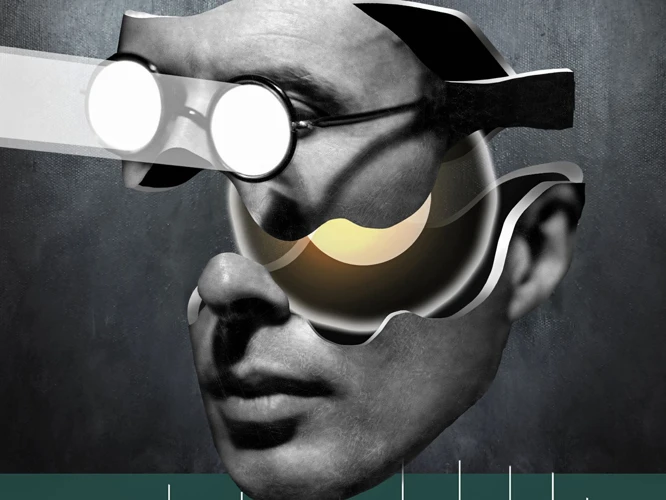Have you ever experienced a dream that seemed like a premonition of the future? Perhaps you brushed it off as a coincidence or a product of your imagination, but what if there was more to it than that? Some people believe that premonition dreams are a sign of a deeper connection between the mind and the universe, while others view them as mere chance occurrences. Regardless of your beliefs, the psychological effects of premonition dreams cannot be ignored. In this article, we will explore the basics of premonition dreams, the experience of having them, and the impact they can have on mental health and daily life. We will also delve into the scientific evidence surrounding premonition dreams and the controversy that surrounds them. So, whether you’re a skeptic or a believer, join us on this journey to uncover the mysteries of premonition dreams.
The Basics of Premonition Dreams

For centuries, people have reported dreaming of events that later turned out to happen in real life. These dreams are known as premonition dreams and they have fascinated individuals around the world. While many skeptics dismiss premonitions as mere coincidences, others believe that they are a real manifestation of the human mind’s ability to predict the future. In this section, we will delve into the basics of premonition dreams, exploring their meaning, origins, and connection to the subconscious mind.
What are Premonition Dreams?
Premonition dreams, also known as psychic dreams or precognitive dreams, are dreams that seem to predict future events or give a glimpse into a possible future. These dreams are often vivid and intense, and they can leave a profound impact on the dreamer.
Characteristics of premonition dreams
Premonition dreams can have several distinctive characteristics that differentiate them from other types of dreams. These include:
| Characteristic | Description |
| Vividness | Premonition dreams are often very vivid and intense, with the dreamer feeling like they are actually experiencing the events that they are dreaming about. |
| Clarity | Unlike other dreams that may be hazy or confused, premonition dreams are often clear and easy to remember in detail. |
| Emotional intensity | Premonition dreams can be emotionally intense, with the dreamer experiencing strong feelings of fear, anxiety, or excitement. |
| Repetition | Some premonition dreams may occur repeatedly, with the dreamer experiencing the same or similar events in different dreams. |
The meaning behind premonition dreams
There is much debate among experts on the meaning behind premonition dreams. Some believe that these dreams are a sign of psychic ability or a sixth sense that allows individuals to glimpse into possible future events. Others suggest that premonition dreams may be a result of the brain processing and synthesizing information from the individual’s environment and experiences, resulting in an intuitive understanding of future possibilities.
Despite the controversy surrounding the origins of premonition dreams, many individuals report experiencing these types of dreams throughout their lives. Whether they are considered a glimpse into the future or a manifestation of the subconscious mind, the impact of these dreams on individuals can be long-lasting and profound.
Theories on the Origins of Premonition Dreams
The origins of premonition dreams have long been a subject of fascination and speculation among religious leaders, psychics, and scientists alike. There are numerous theories about what causes these dreams, and each theory offers its own unique perspective on this mysterious phenomenon.
One theory suggests that premonition dreams are a psychic ability that allows people to connect with the universe and receive information about future events. This theory is based on the idea that everything in the universe is interconnected, and that our minds have the ability to tap into this interconnectedness and receive information about events that have not yet happened.
Another theory suggests that premonition dreams are the result of our subconscious minds processing information that we have not consciously noticed or acknowledged. This theory is based on the idea that our subconscious minds are constantly processing sensory information and experiences, and that sometimes this processing can lead to insights or knowledge that we are not consciously aware of.
A further theory suggests that premonition dreams are simply the result of coincidence or chance. According to this theory, sometimes people have dreams that seem to predict future events, but these predictions are simply the result of statistical probability.
Another theory suggests that premonition dreams are the result of the brain’s ability to simulate future scenarios. This theory is based on the idea that the brain is constantly running simulations of possible future scenarios, and that sometimes these simulations can be so vivid and realistic that we experience them as dreams.
Finally, some spiritual and religious leaders believe that premonition dreams are messages from a higher power or spirit. According to this theory, premonition dreams are a way for spirits or deities to communicate with us and provide guidance or warnings about future events.
The exact origins of premonition dreams remain unclear, and each theory presents its own unique perspective on this fascinating and mysterious phenomenon.
The Connection Between Premonition Dreams and the Subconscious Mind
Have you ever woke up from a dream that felt so vivid and real that you found it hard to shake off? Premonition dreams can have a similar effect on people, with their intense and often prophetic nature leaving us wondering about their significance. But what is the connection between premonition dreams and the subconscious mind?
The subconscious mind is a powerful force in our daily lives, shaping our thoughts, emotions, and behaviors in ways that we may not always be aware of. It is responsible for processing vast amounts of sensory data and turning them into meaningful experiences, which can then be stored in our memories for future reference.
Interestingly, premonition dreams are believed to be connected to the subconscious mind, with many theories suggesting that they can be interpreted as a form of communication from the depths of our psyche. Some researchers believe that premonition dreams may represent an unconscious attempt to work through unresolved conflicts or anxieties, helping us to come to terms with buried emotions in a proactive way.
Another theory suggests that premonition dreams may be our mind’s way of processing future events at an intuitive level, allowing us to prepare for them on a deeper, subconscious level. This would help to explain why premonition dreams are often described as feeling intensely vivid or prophetic, almost as if they are providing us with a warning or a message that we can’t ignore.
Whatever the explanation, the connection between premonition dreams and the subconscious mind remains an intriguing and mysterious topic for many people. While researchers continue to study this phenomenon, it’s clear that these dreams can have a powerful impact on our thoughts, emotions, and behaviors, and may even offer us insights into our deepest selves that we may not have been aware of before.
The Experience of Premonition Dreams

As individuals, we are no stranger to dreams – those captivating and often mysterious experiences that occur during sleep. Yet, some people are said to experience premonition dreams – those instinctive feelings of foresight, providing a glimpse into the future. The experience of premonition dreams can be both fascinating and unnerving, leaving individuals questioning their own psyche and the validity of what they perceive. Let’s explore the ins and outs of premonition dreams, shedding light on their common themes, the role of emotions, and how they impact day-to-day life.
Common Themes in Premonition Dreams
Premonition dreams are often described as vivid and memorable, and they typically involve common themes that can be perceived as warnings or preparations for future events. Here are some of the most common themes in premonition dreams:
- Natural disasters: Many premonition dreams involve natural disasters such as earthquakes, hurricanes, and tsunamis.
- Accidents: People often dream of accidents, such as car crashes, plane crashes, and workplace accidents, which may serve as a warning to be extra careful in waking life.
- Death: Death is a common theme in premonition dreams. Sometimes, the dreamer may see a loved one who has passed away, while other times they may dream of their own death or the death of a stranger.
- Relationship issues: Premonition dreams may also involve relationship troubles, such as a partner cheating or a friend betraying the dreamer. These dreams may be warning signs to be aware of potential issues in relationships.
- Being chased: Another common theme is being chased by someone or something. This may symbolize a fear or anxiety in waking life.
- Flying: Premonition dreams about flying can represent a desire for freedom or a need to escape a situation. However, they can also be interpreted as a warning to be careful and watch out for potential danger or obstacles.
- Warnings: Sometimes, premonition dreams may simply be a warning of something to come, with no specific theme or image.
It is important to note that not all dreams are premonitions and not all premonitions come through in waking life. However, paying attention to common themes in dreams can help individuals to better understand their emotions and mental states.
The Role of Emotions in Premonition Dreams
When it comes to premonition dreams, emotions play a crucial role in shaping the experience. In fact, many people report that the emotions they feel in these dreams are more intense than in regular dreams.
| Emotion | Description |
|---|---|
| Fear | Many premonition dreams involve fearful situations, such as natural disasters or accidents. |
| Anxiety | Some people feel a sense of unease or anxiety in their premonition dreams, even if they can’t identify a specific threat. |
| Sadness | Other premonition dreams may evoke feelings of sadness, such as dreams that predict the death of a loved one. |
| Confusion | Some premonition dreams can be confusing or disorienting, making it difficult for the dreamer to understand the meaning. |
| Relief | In rarer cases, some premonition dreams may bring a sense of relief or comfort, especially if they predict a positive outcome to a stressful situation. |
These strong emotions may also carry over into the waking world, affecting the dreamer long after they wake up. For example, someone who has a premonition dream about a loved one getting into a car accident may feel anxious or worried every time that person gets behind the wheel.
It’s important to remember that not all premonition dreams are negative or distressing. Some may actually bring a sense of clarity or understanding to a situation, allowing the dreamer to process their emotions and move forward in a more positive way.
The Psychological Effects of Premonition Dreams

As individuals, our dreams often serve as a mirror to our innermost thoughts and feelings. However, some dreams go beyond mere self-reflection and appear to offer a glimpse into the future – these are known as premonition dreams. While the existence of such dreams continues to be a topic of scientific debate, many people swear by their ability to predict events and even save lives. But what impact do these dreams have on our psyche? In this section, we will explore the various psychological effects of premonition dreams on individuals, including their impact on mental health, day-to-day life, and overall well-being.
The Impact of Premonition Dreams on Mental Health
The impact of premonition dreams on mental health can vary from person to person. While some individuals may find that their premonition dreams cause them distress and anxiety, others may view these dreams as a form of guidance or intuition. Here’s a table outlining some of the possible effects that premonition dreams can have on mental health:
| Positive Effects of Premonition Dreams | Negative Effects of Premonition Dreams |
|---|---|
| Provide a sense of clarity or direction | Cause anxiety or fear about the future |
| Offer insight into unresolved issues or past traumas | Disrupt sleep and overall well-being |
| Empower individuals to make proactive decisions | Lead to feelings of confusion or uncertainty |
| Provide a feeling of connection to something larger than oneself | Trigger other mental health issues, such as depression or PTSD |
As you can see, there are both positive and negative effects of premonition dreams on mental health. Some individuals may find that their premonition dreams offer them guidance and insight into their lives, while others may experience anxiety or fear about the future. It’s important to pay attention to how premonition dreams are affecting your mental health and overall well-being. If these dreams are causing you distress, seeking support from a mental health professional may be beneficial.
How Premonition Dreams Affect Day-to-Day Life
Premonition dreams have the ability to influence an individual’s day-to-day life in various ways. Here are some of the key ways in which they can affect our lives:
- Alertness: Premonition dreams can make an individual more aware of their surroundings, particularly of potential dangers. This can help them stay more alert and avoid risky situations.
- Decision-making: Premonition dreams can influence an individual’s decision-making process. They may feel compelled to make certain choices or avoid certain actions based on the imagery and emotions portrayed in the dream.
- Anxiety: Premonition dreams can also cause anxiety or even panic attacks when an individual interprets them as warnings of impending danger or trouble.
- Proactivity: On the other hand, some individuals may use their premonition dreams as motivation to take proactive measures to prevent unfavorable events from occurring.
- Intuition: Premonition dreams can enhance an individual’s sense of intuition, allowing them to make better decisions and trust their instincts more.
The effects of premonition dreams on an individual’s day-to-day life can be both positive and negative, depending on how they interpret and respond to them. It is important for individuals to approach these dreams with an open mind and considerate analysis to harness their benefits and mitigate any negative impact.
The Benefits of Paying Attention to Premonition Dreams
It is widely believed that paying attention to premonition dreams can have several benefits for individuals. These benefits could range from improving their mental health to making better life decisions. Here are some of the commonly observed benefits of paying attention to premonition dreams:
| Benefit | Description |
| Better self-awareness | Premonition dreams could help individuals become more aware of their own thoughts and feelings, which could ultimately translate to better decision-making in their waking life. |
| Reduced anxiety | By acting on the messages in their premonition dreams, individuals could feel less anxious about the future. |
| Improved intuition | Paying attention to premonition dreams and acting on their messages could improve an individual’s intuition over time. |
| Better problem-solving skills | Premonition dreams could provide individuals with insights into important decisions they need to make, which could ultimately improve their problem-solving abilities. |
| Greater sense of control | By paying attention to their premonition dreams, individuals could feel more in control of their lives and their future. |
| Improved mental health | Acting on premonition dreams could provide individuals with a sense of clarity and purpose, which could help improve their mental wellbeing. |
It is important to note that while premonition dreams could potentially have these benefits, they should not be solely relied upon to make important life decisions. Rational decision-making should still be a part of the process. However, by paying attention to premonition dreams and using them in conjunction with logical reasoning, individuals may be able to make more informed and satisfying decisions in their lives.
The Scientific Evidence on Premonition Dreams
Despite the numerous personal accounts and anecdotal evidence of premonition dreams, many scientists remain skeptical about their validity. The idea that dreams can predict the future goes against traditional scientific theories and raises questions about the nature of time and consciousness. Nevertheless, some researchers have taken an interest in investigating the phenomenon and have conducted studies to explore the possibility of premonition dreams. In this section, we will take a closer look at the scientific evidence for premonition dreams and the controversies surrounding them.
The Controversy Surrounding Premonition Dreams in Science
The existence of premonition dreams has been a topic of controversy among scientists for many years. While some studies have shown evidence supporting the idea that dreams can predict future events, others have found no scientific proof of this phenomenon.
The Main Arguments Against Premonition Dreams
Skeptics argue that premonition dreams are nothing more than coincidence or the result of selective memory. They explain that humans have thousands of dreams throughout their lifetime, but only a small percentage of these dreams actually come true. According to them, people tend to remember the dreams that contain elements of future events, while forgetting the vast majority of other dreams that don’t come true.
The Main Arguments For Premonition Dreams
Proponents of the idea that premonition dreams are real, however, have several counterarguments to these skeptical views. They point out that many people have reported having premonition dreams that accurately predicted future events, such as natural disasters, accidents, or even the death of a loved one. They argue that premonition dreams cannot be explained solely by coincidence or selective memory, as the accuracy and detail of such dreams are often too specific to ignore.
The Role of Cultural Beliefs
Another factor that contributes to the controversy surrounding premonition dreams in science is cultural beliefs. Some cultures believe strongly in the power of dreams and have a long history of recording and interpreting them. Other cultures consider dreams to be meaningless and give them little importance. This cultural divide can influence the way people perceive and interpret premonition dreams, and can even affect the results of scientific studies on the subject.
While the existence of premonition dreams remains a controversial topic in science, it is clear that many individuals believe in their ability to predict future events. Whether these beliefs are based on superstition or scientific evidence, the impact of premonition dreams on people’s mental health and daily lives cannot be ignored.
Studies on Premonition Dreams and their Psychological Effects
Research on premonition dreams and their psychological effects is a relatively new field, and the scientific community is divided on the topic. Some studies have been conducted to explore the validity and impact of premonition dreams. Here are a few key findings:
- Study 1: In a study published in the Journal of Personality and Social Psychology, participants reported experiencing premonition dreams that were associated with higher levels of anxiety, depression, and stress. The researchers suggested that these negative emotions may be a result of the uncertainty and fear that come with having a dream that seems to predict the future.
- Study 2: Another study, published in the Journal of Parapsychology, examined the accuracy of premonition dreams specifically related to death. The results showed that participants who reported dreams about the death of a loved one had a higher-than-chance accuracy rate in predicting the death within a certain timeframe. However, this study did not explore the psychological effects of having such dreams.
- Study 3: A third study, published in the International Journal of Dream Research, surveyed participants about their beliefs in dreaming about the future and their experiences with premonition dreams. The results showed that those who reported having more premonition dreams had higher levels of sensitivity, intuition, and empathy. However, the study did not investigate the psychological effects of these dreams.
- Study 4: In a more recent study, published in the Journal of Parapsychology, researchers used fMRI scans to examine the brain activity of participants who reported premonition dreams. The results showed that certain brain regions associated with emotion and memory were more active in those who had experienced premonition dreams compared to those who had not. The study suggests that these dreams may have a deeper psychological impact on individuals.
While these studies provide some insight into the psychological effects of premonition dreams, further research is needed to fully understand their validity and impact. Nevertheless, individuals who experience premonition dreams should be aware of their potential impact on their mental health and quality of life.
Conclusion
In conclusion, the psychological effects of premonition dreams on people are complex and multifaceted. While some may argue that these dreams simply reflect one’s anxieties and subconscious worries, others believe that they hold deeper meanings and can provide valuable insights into one’s life.
Regardless of one’s beliefs, it is clear that premonition dreams can have a significant impact on one’s mental health and day-to-day life. The emotions stirred up by these dreams can lead to increased anxiety, stress, and even depression if not properly addressed.
However, paying attention to premonition dreams can also have benefits. By analyzing and reflecting on these dreams, individuals may gain a clearer understanding of their own desires, fears, and motivations. This can lead to greater self-awareness and personal growth.
While the scientific evidence on premonition dreams is still controversial, there are numerous studies that suggest a link between these dreams and their psychological effects. As scientists continue to explore this phenomenon, it is important for individuals to remain open-minded and acknowledge the potential power of their dreams.
In summary, premonition dreams may seem like an enigma, but they offer a unique window into the human psyche. Whether you believe in their prophetic nature or view them simply as a product of the subconscious mind, recognizing their impact on mental health and personal growth is crucial. Only by embracing the mystery of premonition dreams can we fully appreciate their potential to shape our lives.
Frequently Asked Questions
What should I do if I frequently have premonition dreams?
If you frequently have premonition dreams, it may be helpful to keep a dream diary and note down any significant details or emotions from your dreams. You can also try talking to a therapist or counselor to explore any underlying concerns or anxieties that may be causing these dreams.
Are premonition dreams always accurate?
There is no scientific evidence to suggest that all premonition dreams are accurate. However, some people have reported a high degree of accuracy in their premonition dreams.
Can premonition dreams be prevented?
There is no known way to prevent premonition dreams from occurring. However, practicing good sleep habits such as avoiding caffeine and electronics before bedtime may help reduce the occurrence of disruptive dreams.
Do premonition dreams always have a negative impact on mental health?
Not necessarily. While premonition dreams can be distressing, some people find that the insights gained from these dreams can be helpful in managing anxiety or stress.
Can medication or therapy help with premonition dreams?
There is no specific medication or therapy designed to treat premonition dreams. However, therapy or counseling can help manage any anxiety or stress associated with these dreams.
Can anyone have a premonition dream?
It is believed that anyone can have a premonition dream, although some people may be more prone to having these experiences than others.
Can premonition dreams be interpreted?
Premonition dreams can be interpreted in a similar way to other dreams. It may be helpful to explore any symbols or recurring themes in the dream, as well as any emotions that were felt during the dream.
Is there a spiritual or supernatural explanation for premonition dreams?
Some people believe that premonition dreams have a spiritual or supernatural explanation. However, there is no scientific evidence to support these claims.
Can premonition dreams be shared with others?
Premonition dreams can be shared with others, although it is important to be mindful of how the information might impact others. It may be helpful to approach the topic with sensitivity and empathy.
Can premonition dreams be prevented through lucid dreaming?
There is no evidence to suggest that lucid dreaming can prevent premonition dreams from occurring. However, lucid dreaming may be helpful in managing the emotions and anxiety associated with these dreams.








